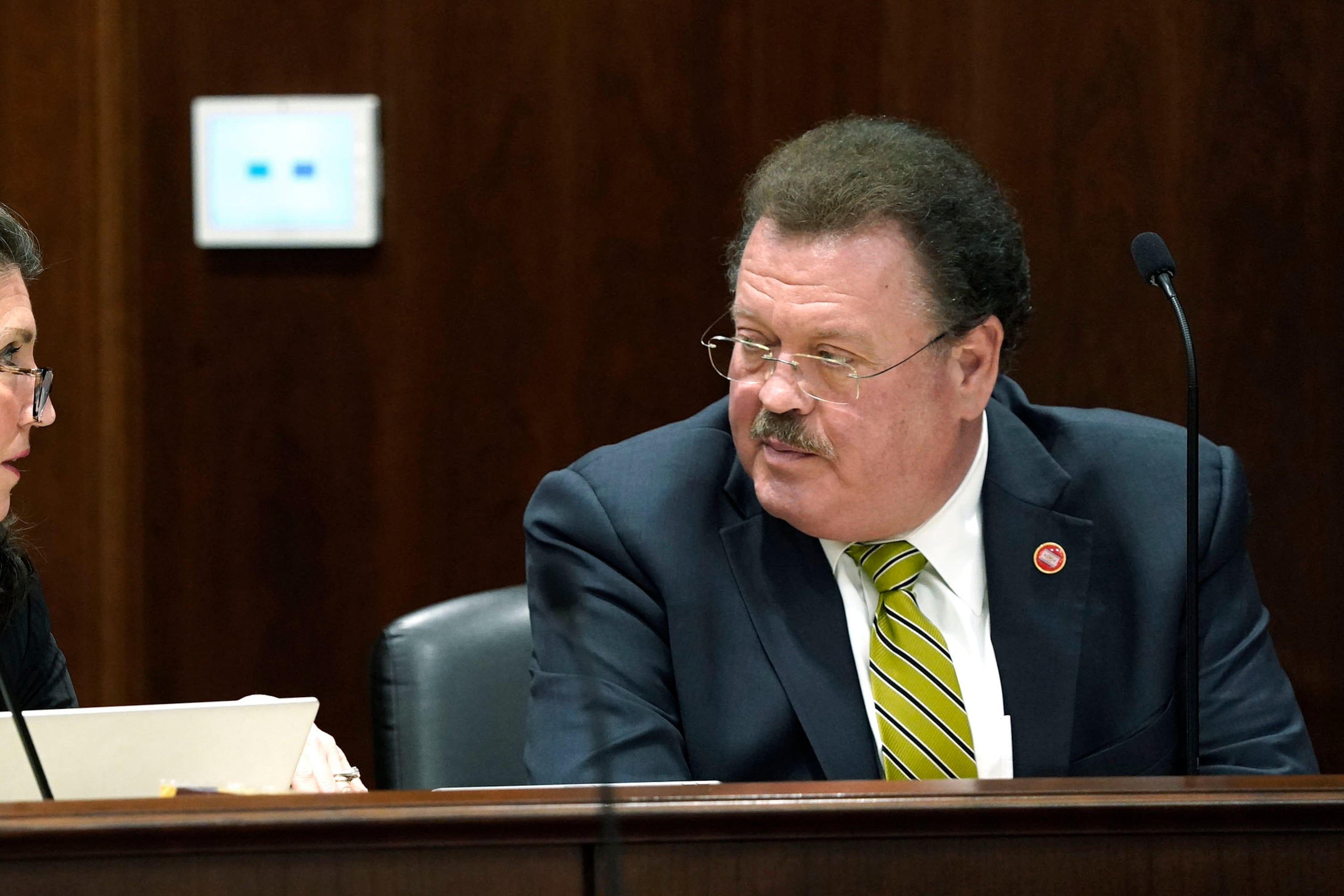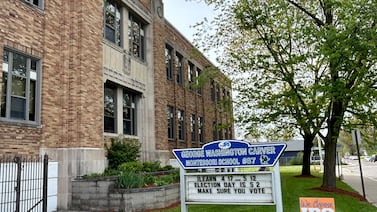Tennessee’s textbook commission could overrule local school board decisions and ban certain school library books statewide under 11th-hour legislation approved Thursday by state lawmakers.
Senate and House negotiators struck a deal to soften a House bill that passed a day earlier aimed at making librarians submit their inventory of books to the politically appointed commission for review and possible vetoes.
The final legislation creates a statewide process in which parents, school employees, or other complainants can appeal the decisions of locally elected officials on books challenged as being “inappropriate for the age or maturity levels” of students who can access them.
Rep. Jerry Sexton, a Republican from Bean Station who sponsored the bill, called it a “great compromise that is good for our schools.”
But a leader with the Tennessee Association of School Librarians worried that young readers could lose access to ideas and information in their schools.
“This essentially opens up opportunities for one parent or one person to dictate what is in all school libraries in our state,” said Lindsey Kimery, a Nashville school librarian who is the organization’s past president.
Gov. Bill Lee’s office said he planned to review the bill when it reaches his desk, but didn’t comment further.
Tennessee has been in the national spotlight for book bans and challenges, especially an East Tennessee school board’s decision in January to remove “Maus,” a Pulitzer Prize-winning graphic novel about the Holocaust, from an eighth-grade reading list. Free speech advocates worry the current wave of legislation aimed at curriculum and school libraries nationwide will pressure local school leaders to pull titles from their shelves to avoid controversy.
Last month, Lee, a Republican, signed into law his own plan requiring school libraries to screen their materials for “age appropriateness.” But several Republican lawmakers sought harsher measures, including one failed attempt to slap librarians with criminal penalties over books that some might label obscene.
Sexton’s bill, co-sponsored by Republican Sen. Jon Lundberg of Bristol, passed on the final day of the legislative session and a day after a testy exchange on the House floor about what would happen to any books banned as a result of his legislation.
“Are you going to put them in the street? Light them on fire? Where are they going?” asked Democratic Rep. John Ray Clemmons of Nashville.
Sexton responded: “I don’t have a clue, but I would burn them.”
He later said that he didn’t expect any book burnings.
During negotiations to reconcile the House and Senate versions of the bill, a longtime member of the Senate Education Committee said he expected book appeals to the commission would be rare.
“I can’t imagine it being more than a handful — five a year, 10 a year,” said Sen. Mike Bell, a Riceville Republican who voted for the bill. “I think if it’s more than that, the General Assembly will have to come back and address this at a later time.”
But the prospect of overruling locally elected officials and then banning a book statewide drew the ire of Sen. Brenda Gilmore, a Nashville Democrat who was on the negotiating committee and voted against the bill.
“Different counties have difficult cultures, different value systems,” Gilmore said.
The Tennessee School Boards Association didn’t respond to requests for comment.
On Thursday, there was no debate on the House floor on the compromise legislation that passed 60-25. In the Senate, where the vote was 21-10, several Democrats spoke in opposition.
“I just think we are going down a really dark and dangerous path,” said Senate Minority Leader Jeff Yarbro of Nashville. “This is not a time for this body to compromise and meet halfway to crazy.”
Other critics said they don’t want the rights of one parent to trample the rights of another.
“If you don’t think a book is appropriate, simply do not allow your child to read that book,” said Sen. Raumesh Akbari, a Democrat from Memphis.
The textbook commission oversees the official list of textbooks and instructional materials recommended for use by Tennessee students. It is composed mostly of educators but also includes three non-educators, all of whom are appointed by the governor and the speakers of the House and Senate.
The bill would expand the commission to 13 members, including two school librarians as voting members and a state library coordinator as a non-voting member.
Last fall, House Speaker Cameron Sexton, who is not related to Jerry Sexton, drew criticism for his appointment of Laurie Cardoza-Moore, a former Williamson County school board candidate who is founder and president of the Franklin-based nonprofit Proclaiming Justice to the Nations. Her evangelical Christian group supports Israel, advocates against anti-Semitism, and opposes teaching that resembles critical race theory, a field of study more typically found at the college level that delves into race relations and how policies and the law perpetuate systemic racism.
A decade ago, she helped lead the fight against establishing a mosque in Tennessee.
You can track the bill here.
Marta W. Aldrich is a senior correspondent and covers the statehouse for Chalkbeat Tennessee. Contact her at maldrich@chalkbeat.org.





